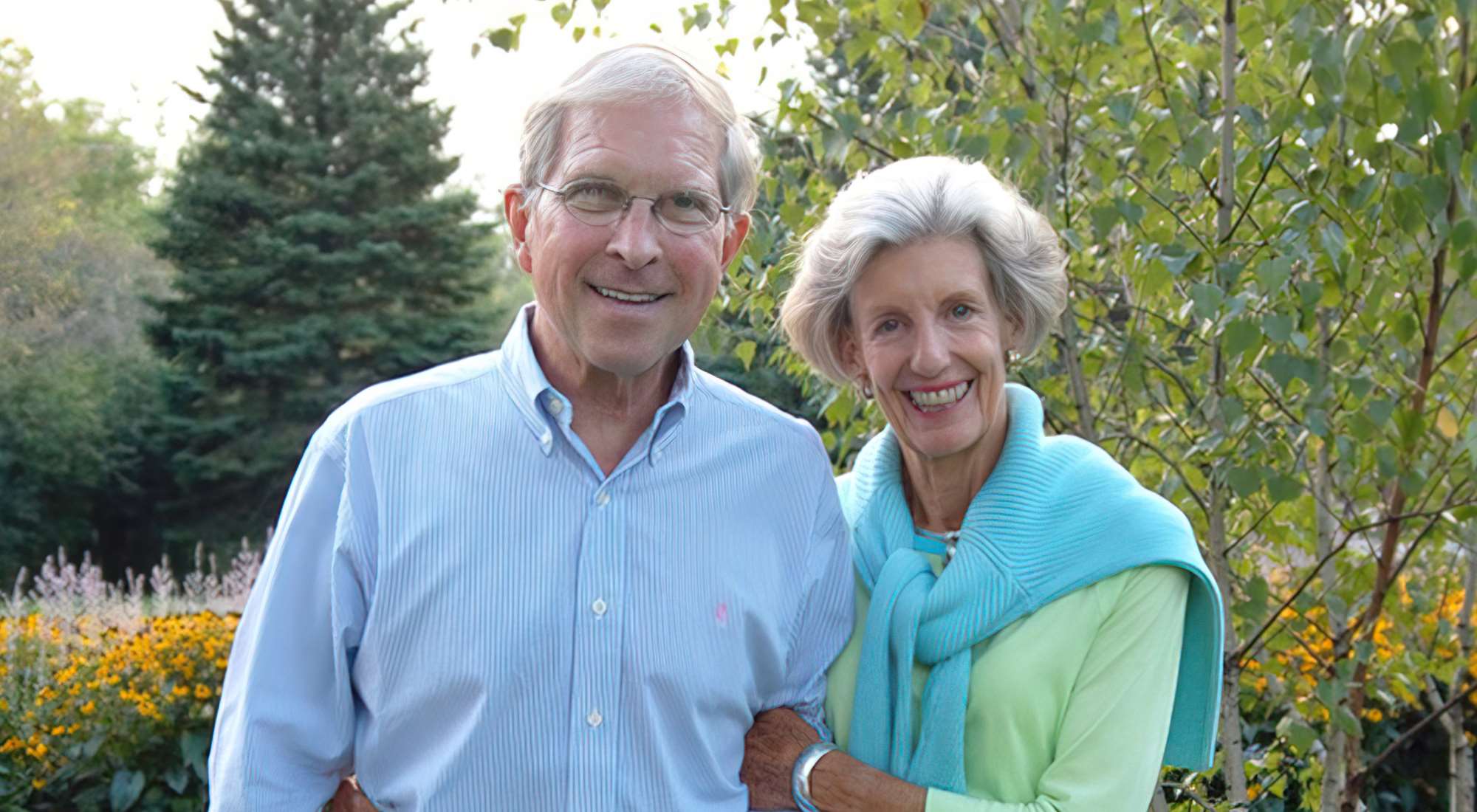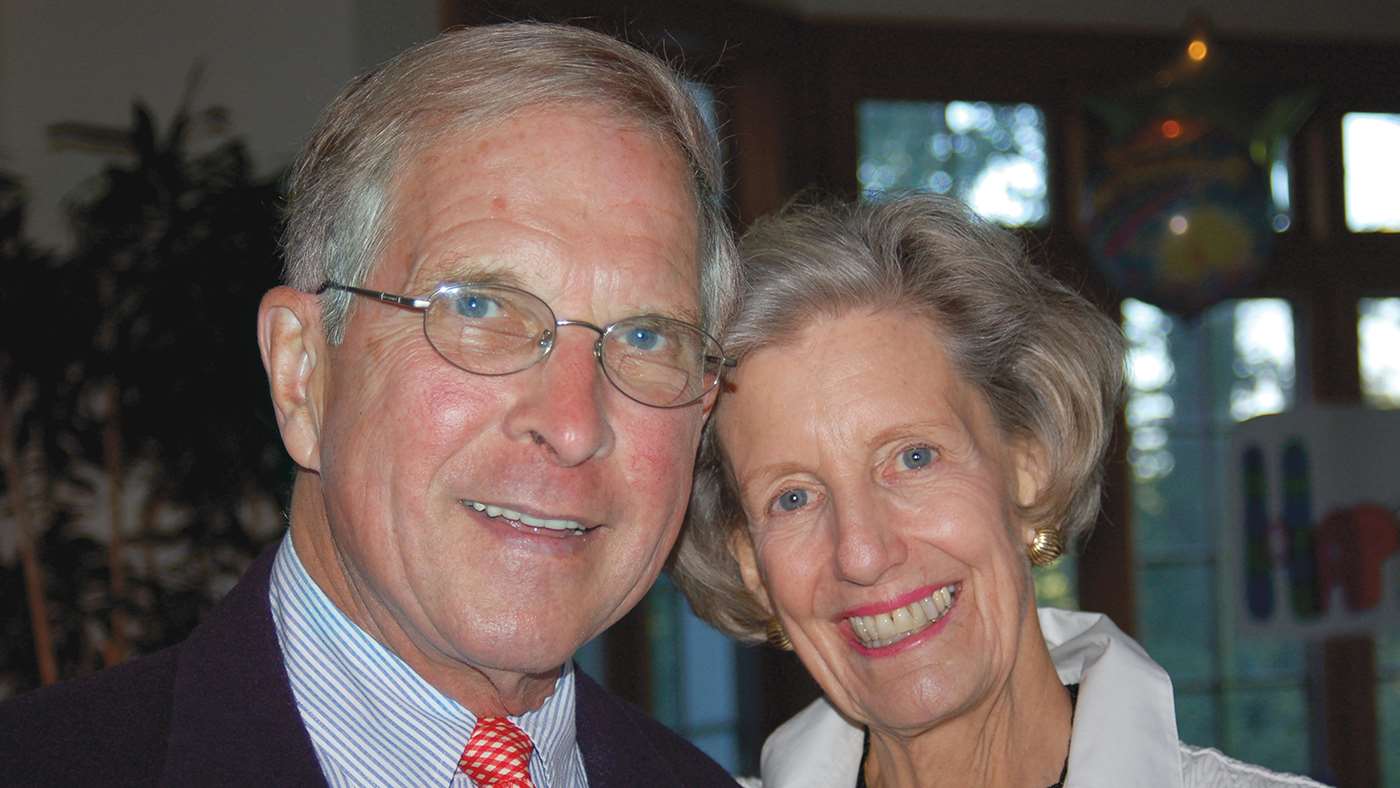A Family’s Devotion and a Gift of Hope

Jim and Libby Wigdale, August 29, 2006. (Photo courtesy of the Wigdale family.)
Libby and Jim Wigdale lived lives full of devotion – to their family and friends, and in service to their community. Now, their children are doing the same by devoting their time and support to the improvement of healthcare for patients and families struggling with memory loss and Alzheimer’s disease. They have partnered with the Medical College of Wisconsin and Froedtert Hospital to support medical discovery and clinical care programs.
It’s a struggle the family knows well, according to Julie Kennedy, Jim and Libby’s daughter and one of the five Wigdale siblings who are advocates for new research in the field.
“We learned of the need for new research and clinical trials through the care our parents received from Dr. Malgorzata Franczak at Froedtert Hospital,” Kennedy says. “We feel strongly that our support is important, as many other families are also affected by Alzheimer’s disease and memory disorders.”
Libby passed away in June of 2021, followed by Jim in January of 2022. The Wigdale family made a substantial gift to establish the Elizabeth T. and James B. Wigdale Innovation Fund for Memory Disorders in memory of Jim and Libby Wigdale and to honor Malgorzata Franczak, MD, GME ’98, FEL ’99, and her research. The fund advances innovative medical research to treat memory disorders at MCW and Froedtert Hospital – from Alzheimer’s disease to dementia to mild cognitive impairment and more.
Dr. Franczak is a professor of neurology and director of the Memory Disorders Program. “It was a privilege to know Libby and Jim Wigdale and to engage with their family,” says Dr. Franczak. “Memory disorders affect nearly every family, and I am incredibly grateful for everything they are doing in their parents’ memory to undertake the research necessary to treat and cure neurological conditions.”
According to the Centers for Disease Control and Prevention (CDC), Alzheimer’s disease is the sixth-leading cause of death in the US and the most common cause of dementia. Nationally, an estimated 6.2 million people of all ages have Alzheimer’s disease, and by 2050, the number of Americans 65 years of age and older with the disease is estimated to reach 12.7 million.
And while the diseases that affect memory and other neurological conditions are difficult for patients, the emotional and mental impact on caregivers – most often family members – also is striking. A survey cited by the CDC found that 14.5 percent of caregivers experienced at least 14 mentally unhealthy days in the month leading up to the survey. Moreover, nearly 40 percent reported patterns of sleeplessness affecting their physical and mental health.
The Memory Disorders Clinic was established as a hub for discovery and a source for new treatments and is part of the Wisconsin Institute of NeuroScience, an initiative of MCW, Froedtert Hospital, Children’s Wisconsin and the Zablocki VA Medical Center.
“Our parents were longtime supporters of MCW and Froedtert Hospital,” says Kennedy, noting that Jim was a member of the MCW board of trustees, where he served as chair and was elected as an emeritus trustee.
Through Dr. Franczak and her research, the family noticed significant improvements to their parents’ care. While Libby was benefiting from treatments to Alzheimer’s disease, Dr. Franczak noted a decline in Jim’s gait. Jim went from walking to needing a wheelchair for mobility. Dr. Franczak suggested further testing which resulted in a shunt surgical procedure for Jim. Postsurgery, Jim was able to walk independently and live a fuller, more engaged life.

Jim and Libby Wigdale celebrate his 70th birthday on August 11, 2006. (Photo courtesy of the Wigdale family.)
Ekokobe Fonkem, DO, chair and professor of MCW’s department of neurology, stresses that philanthropy is an essential component of furthering research – particularly work in the early phases of understanding how to diagnose a particular disease or advance a new treatment.
“Neurological problems in medicine are uniquely complicated,” says Dr. Fonkem, “but philanthropy helps us invest in new technologies, recruit specialists and researchers, and train the next generation of neurologists. Our collaboration with the Wigdales will help families benefit from new treatments and cures.”
“The type of research we undertake at MCW is devoted to families like the Wigdales all over the country,” says Dr. Franczak. “The burden of Alzheimer’s disease and memory disorders is unique in how it can impact the whole family. Our entire team is grateful for the Wigdales’ support and vision in providing funding for this research.”
– Michael J. Mathias



